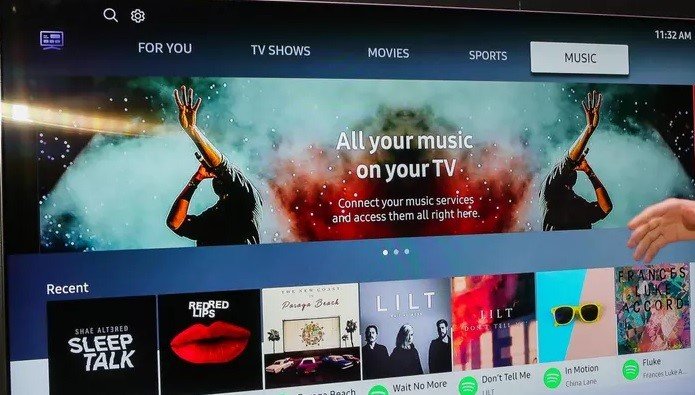Any source of information about people can be exploited by large companies. Data protection specialists at two different research centers say smart TVs share sensitive user data with companies such as Facebook, Google, Amazon and Netflix.

The experts, from British and American universities, have looked at how a smart TV, considered an IoT device, collects user information to detail profiles and consumption habits and then send this data to the aforementioned companies.
More than 80 devices were analyzed, including smart TVs from LG, Samsung, among others; at the conclusion of the investigation, data protection experts determined that at least 72 of these devices send data to a different location than the manufacturer. The main destinations for this information include Google, Microsoft and Akamai; “This is likely because these companies provide cloud computing services for the operation of these devices,” the experts say.
Researchers also found that more than 80% of channels viewed on Amazon TV and Roku contain ‘trackers’ (operated by Facebook and Google) for collecting content viewing preferences. Another feature of these trackers is the ability to collect information to uniquely identify a device, such as IP address, serial numbers, used WiFi networks, among others.
On the other hand, journalist Geoffrey Fowler contributed to this research by conducting an experiment on his own smart TV, discovering that companies can even send screenshots of a user’s TV. Using open source software known as IoT Inspector, developed by an US university, Fowler discovered that his Samsung Smart TV could spy on the content displayed on his screen: “just by collecting a few pixels companies know what we’re seeing in our Smart TVs; some may also take screenshots,” Fowler says.
Data protection specialists say companies use this information to link the content preferences of people with advertising on their laptops, tablets and smartphones, relating to the IP address of smart TVs. Alongside with voice assistants and other IoT devices, smart TVs complete an environment of constant monitoring and surveillance,” the experts added.
A recently released prospective analysis argues that by 2020, more than a third of US households will have fully opted for the use of content streaming services, leaving behind the services of cable TV companies. Because of this, data protection specialists from the International Institute of Cyber Security (IICS) anticipate that privacy incidents related to the use of these devices and services will largely increase, so it is necessary to anticipate these incidents and create conditions that allow wireless connections to grow without posing a risk to users’ privacy. “We must discourage the use of connections and services unfriendly to consumer privacy, access to content via streaming does not compensate for the loss of privacy”, concludes the report.

He is a well-known expert in mobile security and malware analysis. He studied Computer Science at NYU and started working as a cyber security analyst in 2003. He is actively working as an anti-malware expert. He also worked for security companies like Kaspersky Lab. His everyday job includes researching about new malware and cyber security incidents. Also he has deep level of knowledge in mobile security and mobile vulnerabilities.











